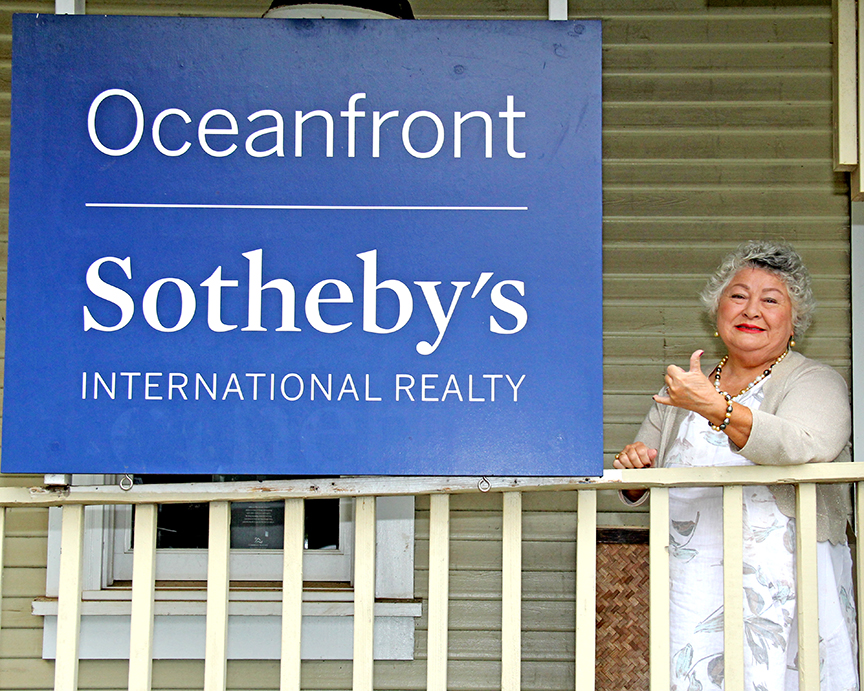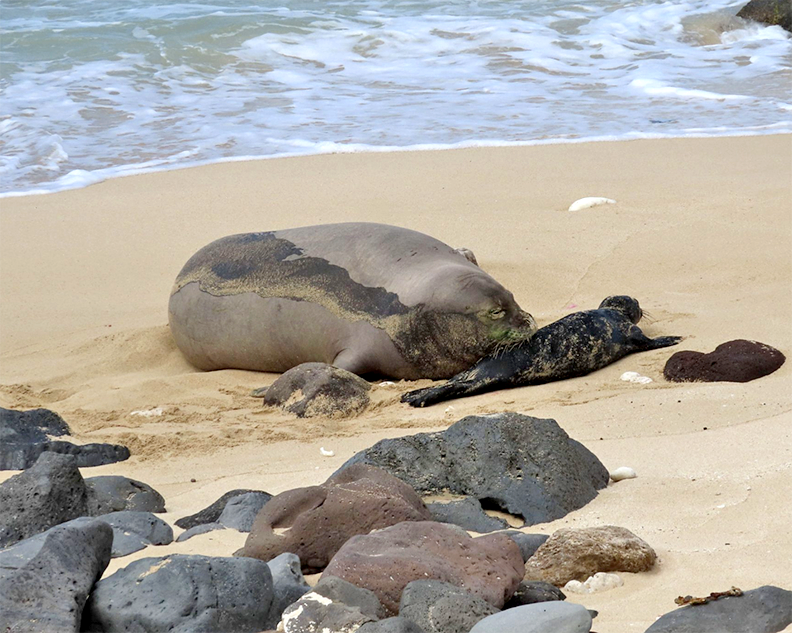By Léo Azambuja

The Historic County Building in Lihu‘e dressed up in lights for the annual Festival of Lights. Contributed photo
When I was growing up in Brazil, every year in December, it was common for trash collectors, postal workers, newspaper boys, and propane and electric company workers to knock on our door and ask for a “Christmas box” — a tip for their services throughout the year, to go toward Christmas gifts for their families.
It wasn’t until recently that I learned the connection between “Christmas box” and Boxing Day, a bank and public holiday observed on Dec. 26 by the Commonwealth of Nations, a voluntary association of 53 sovereign countries made up mostly by the United Kingdom and its former colonies.
In the 1800s, the Oxford English Dictionary defined Boxing Day as “the first week-day after Christmas-day, observed as a holiday on which post-men, errand-boys, and servants of various kinds expect to receive a Christmas-box.” According to the Oxford Dictionary, the term “Christmas-box” goes back to the 17th century in England, and it meant a present or a gratuity given to public workers by the general population during Christmas. The logic was that even though many of those servants provided services throughout the year, they were not directly paid, so the Christmas-box gave them some direct acknowledgment during Christmas.
In the 17th century England, it was common for tradesmen to collect such Christmas boxes on the first day after Christmas. Some believe this practice may have been connected with an even older British tradition. Servants who waited on the wealthy on Christmas Day could only be with their own families on the next day. So their employers would give them a box with gifts, money and perhaps some leftover food.
But Boxing Day may also have some deeper religious roots. Most European churches built before the 19th century had an alms box — also known as offertory box, poor box or mite box — to collect money for the poor. Before governments took upon themselves to help the poor, those boxes were the main source of relief for the poor. Some believe the alms boxes placed in those churches would later inspire a tradition of giving money and gifts to public servants during Christmas season.
By 1920, the British Empire covered 24 percent of the Earth’s land area, and many of its traditions were carried on to other cultures. In South Africa, for example, a former British colony, up until recently it was customary for milkmen and garbage collectors to knock on people’s doors a week before Christmas to ask for a Christmas box, a small cash donation.
Besides being a bank and public holiday for most countries in the Commonwealth of Nations, Boxing Day is a major shopping holiday for some of those countries, including the United Kingdom, Australia, Canada, New Zealand and Trinidad Tobago. The shopping spree rivals Black Friday in the United States.
Additionally, Boxing Day is a date for many major sports events in Commonwealth nations. In England, Scotland and Northern Ireland, soccer and rugby leagues hold a full schedule. England also has major horse races and hunting meets. Australia has rugby matches and yacht races.

Léo Azambuja
Boxing Day may come from the Christmas boxes tradition, but it is also a day of boxing fights. Guyana, Italy, Ghana, Uganda, Malawi and Tanzania are some of the Commonwealth nations that usually hold professional boxing fights on Boxing Day.
In one form or another, Boxing Day spread outside the Commonwealth of Nations. In Brazil, Boxing Day was never a holiday, but the tradition of Christmas box is certainly still there, and with a strong presence.
Even in the United States there is a Boxing Day. In 1996, Massachusetts Gov. William F. Weld proclaimed Dec. 26 as Boxing Day, “prompted by Julien Tavener and his fellow Brits who wanted to transport the English tradition to the United States,” the Sun Journal published on Dec. 26, 1996. Unfortunately for bank and public workers, the date, however, is not listed as a state or federal holiday.
As we plan gift exchanges and major feasts for Christmas — and countless pumpkin spice lattes — let’s take a moment to think about those who could use an extra help.
What can we add to someone’s Christmas box this year?
Discover more from ForKauaiOnline
Subscribe to get the latest posts sent to your email.




Leave a Reply